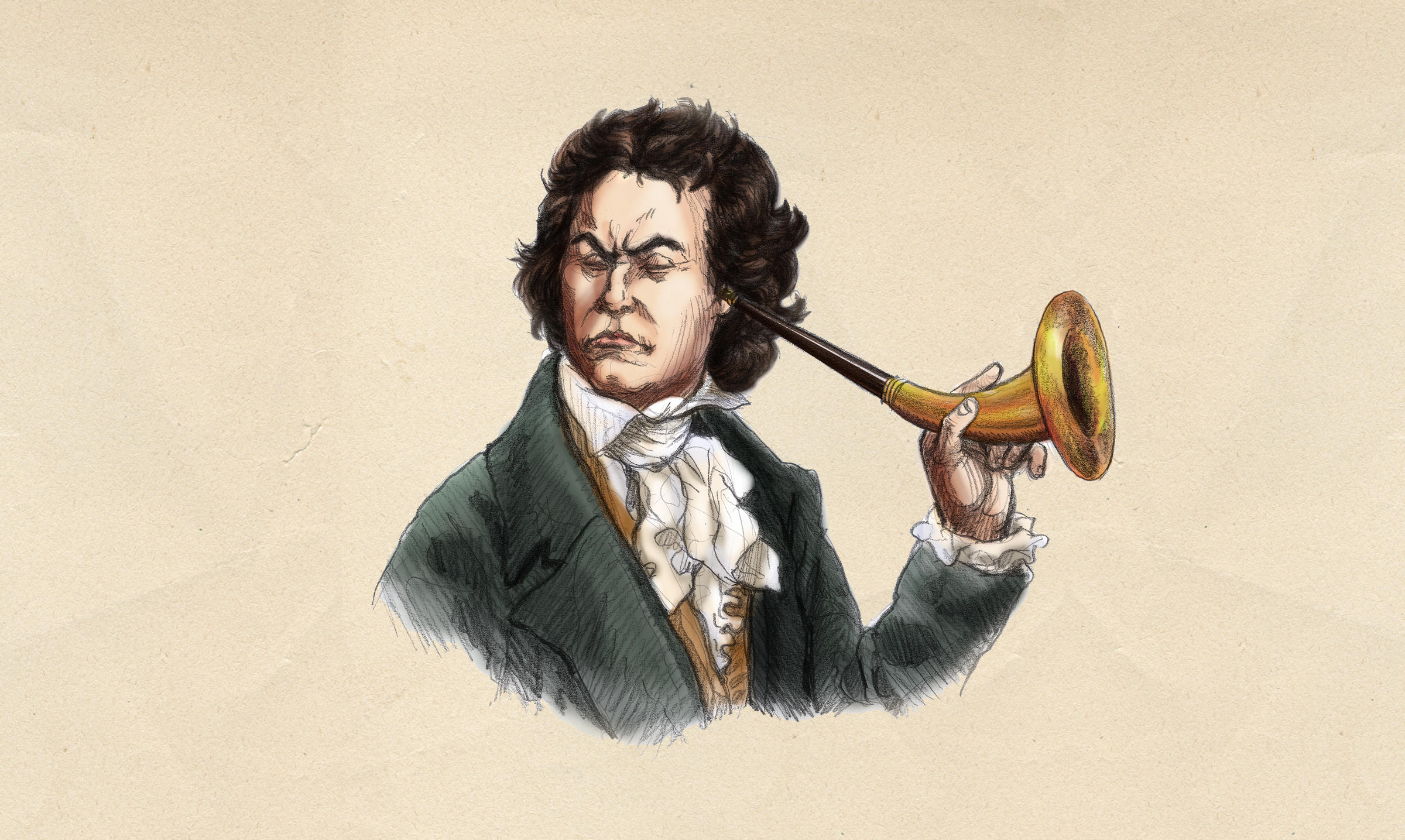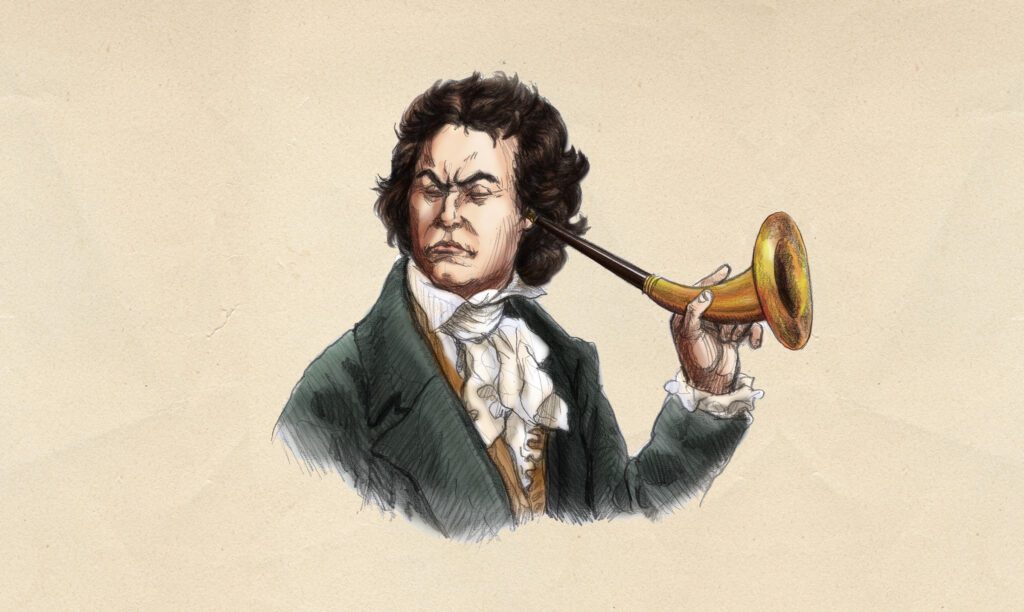Ludwig van Beethoven, the renowned composer and pianist, is widely celebrated for his incredible musical achievements. However, behind his extraordinary talent lies a tragic and life-altering challenge: Beethoven gradually lost his hearing, a condition that profoundly impacted his personal and professional life.
Beethoven’s journey into deafness began in his late twenties when he first experienced a persistent buzzing and ringing in his ears, known as tinnitus. This condition, accompanied by episodes of ear pain and gradual hearing loss, marked the onset of his deafness. As a composer and performer deeply connected to the world of sound, the realization that he was losing his hearing must have been devastating for Beethoven.
Initially, Beethoven struggled to come to terms with his condition. He withdrew from social engagements, avoiding conversations and interactions that reminded him of his deteriorating hearing. In an attempt to hide his disability, he would sometimes turn his back to the audience during performances to conceal the fact that he couldn’t hear the applause. However, as his hearing continued to decline, these coping mechanisms became increasingly insufficient.
As Beethoven’s hearing worsened, he sought medical advice from various physicians and specialists, but there was little that could be done to restore his hearing or halt the progression of his deafness. Despite his desperate attempts to find a cure, his condition only grew worse over time. By his mid-thirties, he had lost a significant portion of his hearing, and by his forties, he was almost entirely deaf.
The loss of his hearing was undoubtedly a source of great frustration and anguish for Beethoven. Imagine a composer who could no longer hear the melodies he created or appreciate the harmonies he so meticulously composed. Despite these profound challenges, Beethoven persevered, finding innovative ways to continue his musical career.
One of the most remarkable aspects of Beethoven’s response to his deafness was his unwavering determination to create and share his music with the world. Rather than succumbing to despair, he channeled his emotions and frustrations into his compositions, pouring his soul into each note. Beethoven’s later works, such as his Ninth Symphony and the introspective late string quartets, exemplify his ability to transcend his own deafness and communicate his innermost thoughts and emotions through music.
Beethoven’s deafness had a profound impact on the way he composed. Unable to hear the sounds he was creating, he relied heavily on his inner musical imagination and his acute sense of touch on the piano. He would often place his ear close to the piano’s soundboard to feel the vibrations, allowing him to perceive the nuances and dynamics of the music he composed. This unconventional approach not only demonstrates Beethoven’s resilience but also showcases his unparalleled ability to create music that resonates deeply with listeners.
While Beethoven’s deafness undoubtedly presented immense challenges, it also played a significant role in shaping his musical legacy. His experiences with hearing loss forced him to explore new creative avenues, pushing the boundaries of classical music and paving the way for future generations of composers. His remarkable ability to compose groundbreaking works without the ability to hear them stands as a testament to his genius and indomitable spirit.
Ludwig van Beethoven’s deafness serves as a reminder that even in the face of adversity, human creativity can triumph. His enduring legacy not only lies in the beauty of his music but also in his unwavering determination to overcome the limitations imposed by his deafness. Beethoven’s story teaches us the power of resilience, the triumph of the human spirit, and the boundless possibilities of the human imagination.


Comments are closed